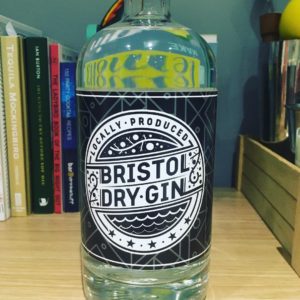 Have you ever had the discussion about “what makes a craft gin, craft”? For me, there are many factors but I’m also interested in the story and the dedication to the gin. Smeaton’s gin is one of those such gins. They use the “Bristol method” which involves distilling each botanical separately, and each batch of distillates varies in maceration length and temperature of distillation to ensure that the very best flavours are achieved. They base their gin on a recipe from 1870 and use eight botanicals, usual suspects juniper, coriander, orange, orris, angelica and liquorice meet cinnamon and calamus – a plant commonly used to help with stomach ailments. Team Smeaton feel that no garnish is needed for their gin as they invest their time into blended it to the perfect taste so nothing is needed to enhance it. Bold claims, so let’s see how it tastes.
Have you ever had the discussion about “what makes a craft gin, craft”? For me, there are many factors but I’m also interested in the story and the dedication to the gin. Smeaton’s gin is one of those such gins. They use the “Bristol method” which involves distilling each botanical separately, and each batch of distillates varies in maceration length and temperature of distillation to ensure that the very best flavours are achieved. They base their gin on a recipe from 1870 and use eight botanicals, usual suspects juniper, coriander, orange, orris, angelica and liquorice meet cinnamon and calamus – a plant commonly used to help with stomach ailments. Team Smeaton feel that no garnish is needed for their gin as they invest their time into blended it to the perfect taste so nothing is needed to enhance it. Bold claims, so let’s see how it tastes.
bristol
Bristol Dry Gin
 The best thing about having lovely friends combined with a birthday and house warming party is that nice people buy you nice gin. Today’s gin is courtesy of my friend Jo, who lives in Bristol, who gave me a bottle of Bristol Dry Gin. When I last visited her I had spotted it in a bar, but as we had popped in for a snack before afternoon tea, I thought it might be a tad too early for a gin. Launched in 2016, Bristol Dry gin was developed by a group of bartenders under the ethos that they were creating a gin for everyone, not just those that can pay £40+ per bottle. Since 2016, they have expended their range to include a Docker’s Strength (55% so named after the dockers from Bristol), the Turbo Island Edition which is a whopping 75% ABV, and a vodka. Today though we drink their Dry gin which underwent rigorous taste testing at their base in The Rummer Hotel, which historically has a reputation for their pionnering cocktail bar. They keep their botanical list pretty secret, stating only the use of “juniper, citrus and angelica root”, so, let’s see if I’m able to guess any more.
The best thing about having lovely friends combined with a birthday and house warming party is that nice people buy you nice gin. Today’s gin is courtesy of my friend Jo, who lives in Bristol, who gave me a bottle of Bristol Dry Gin. When I last visited her I had spotted it in a bar, but as we had popped in for a snack before afternoon tea, I thought it might be a tad too early for a gin. Launched in 2016, Bristol Dry gin was developed by a group of bartenders under the ethos that they were creating a gin for everyone, not just those that can pay £40+ per bottle. Since 2016, they have expended their range to include a Docker’s Strength (55% so named after the dockers from Bristol), the Turbo Island Edition which is a whopping 75% ABV, and a vodka. Today though we drink their Dry gin which underwent rigorous taste testing at their base in The Rummer Hotel, which historically has a reputation for their pionnering cocktail bar. They keep their botanical list pretty secret, stating only the use of “juniper, citrus and angelica root”, so, let’s see if I’m able to guess any more.